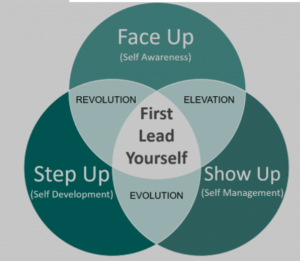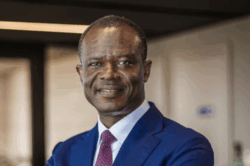As the calendar turns to a new year, leaders and professionals across industries find themselves at a pivotal moment—a time to pause, reflect, and chart a course for the months ahead. In this era of rapid change and unprecedented challenges, the ability to learn from the past and adapt for the future has never been more critical.
This article explores the transformative power of reflection, the importance of resetting for new challenges, and strategies to reignite passion and purpose in leadership roles.
The power of reflection in leadership
Reflection is not merely a passive exercise but a powerful tool for personal and professional growth. Leaders who engage in regular self-reflection are better equipped to navigate complex challenges and drive meaningful change. The practice of reflection allows leaders to enhance their self-awareness, adaptability, and decision-making skills.
Reflective leadership offers numerous benefits. It enhances self-awareness, allowing leaders to gain a deeper understanding of their strengths, weaknesses, and core values. This self-knowledge is crucial for authentic and effective leadership. Moreover, by examining past experiences and decisions, leaders can develop new insights into complex problems and consider multiple perspectives, leading to improved problem-solving skills.
Reflection also fosters increased empathy, enabling leaders to better understand their team members and stakeholders. This deeper understanding fosters stronger relationships and more effective communication. Empathetic leaders are better positioned to build trust and inspire their teams.
Perhaps most importantly, the habit of reflection promotes a growth mindset, encouraging leaders to view challenges as opportunities for learning and improvement. This attitude is essential in today’s fast-paced business environment, where adaptability and continuous learning are key to success.
To harness these benefits, leaders can implement several reflective practices. Scheduling regular reflection time is crucial. Setting aside 10-20 minutes each week for focused reflection, treating this time as a non-negotiable appointment with oneself, can make a significant difference. Consistency is key to developing a sustainable reflective practice.
Creating a structured approach to reflection can also be beneficial. Using guiding questions or journaling prompts can help focus reflections on topics such as weekly accomplishments, lessons learned, and areas for improvement. This structured approach ensures that reflection time is productive and meaningful.
Seeking diverse perspectives is another valuable strategy. Incorporating feedback from team members and peers into reflections can provide valuable insights and challenge assumptions. Actively seeking diverse viewpoints can broaden understanding and lead to more inclusive leadership.
Documenting thoughts through a reflection journal or digital log allows leaders to track progress over time. This record serves as a valuable resource for identifying patterns and measuring growth. Reviewing past reflections can provide insights into one’s development as a leader.
Finally, incorporating mindfulness techniques into reflection practice can enhance its effectiveness. Mindfulness helps leaders stay present and focused during reflection, leading to deeper insights and clearer thinking.

Resetting for new challenges
The start of a new year offers a natural opportunity to reset and realign priorities. However, this process should be approached thoughtfully to ensure meaningful and sustainable change. An effective reset begins with decluttering both mind and space. Just as physical decluttering can create a sense of order, mental decluttering provides clarity and focus. Taking time to organize thoughts, goals, and workspace can lead to clearer thinking and increased productivity.
Reassessing one’s vision is another crucial step. Leaders should review their personal and professional vision, ensuring it still aligns with their values and aspirations. If not, this is the time to make adjustments. A clear vision serves as a guiding light for the leadership journey.
Setting SMART goals—Specific, Measurable, Achievable, Relevant, and Time-bound—provides clarity and accountability for the year ahead. Breaking down larger goals into smaller, actionable steps helps maintain momentum throughout the year.
Prioritizing self-care is essential for effective leadership. Establishing routines that support physical and mental health, such as regular exercise, meditation, or dedicating time to hobbies and personal interests, ensures leaders are at their best.
While setting goals is important, embracing flexibility is equally crucial. Remaining open to adjusting plans as circumstances change is a key trait of resilient leaders. Developing contingency plans and being prepared to pivot when necessary allows leaders to navigate unexpected challenges effectively.
Conducting a skills audit can identify areas for improvement. Assessing current skill sets and identifying gaps, both in technical skills relevant to the industry and soft skills crucial for effective leadership, allows for targeted development. Creating a plan to address these gaps through training, mentorship, or hands-on experience ensures continuous growth.
Building a strong support network is another vital aspect of resetting for new challenges. Surrounding oneself with individuals who support growth and provide constructive challenges can offer guidance and accountability throughout the year.

Reigniting passion and purpose
Leadership can be demanding, and over time, even the most dedicated professionals may find their enthusiasm waning. Reigniting passion and purpose is essential for sustained success and fulfillment in leadership roles.
Reconnecting with one’s ‘why’ is a powerful way to rekindle leadership fire. Reflecting on what initially drew one to their leadership role can reignite a sense of purpose. Creating a personal mission statement can reinforce this commitment and provide a touchstone during challenging times.
Seeking new challenges is another effective strategy. Stepping out of one’s comfort zone can spark renewed enthusiasm. Looking for opportunities to learn new skills or take on projects that stretch abilities can lead to personal growth and renewed excitement in one’s role.
Fostering a culture of innovation within the team can be energizing for both leaders and team members. Encouraging creativity and experimentation creates a dynamic, forward-thinking environment. Creating spaces for brainstorming and rewarding innovative thinking can lead to breakthrough ideas and a more engaged workforce.
Cultivating meaningful connections is crucial for sustained leadership passion. Investing time in building and nurturing relationships with team members, mentors, and industry peers provides support, inspiration, and fresh perspectives. Attending industry events, joining professional organizations, or participating in leadership forums can expand one’s network and expose leaders to new ideas and approaches.
Celebrating successes, both big and small, fuels motivation and reinforces a sense of purpose. Implementing regular team celebrations and personal reward systems maintains momentum and acknowledges progress along the leadership journey.
Engaging in continuous learning is another key to reigniting passion. Staying curious and committing to lifelong learning through reading widely, attending workshops, or pursuing further education in areas of interest keeps the mind engaged and open to new possibilities. A growth mindset can reignite passion for leadership and one’s industry.
Finally, practicing gratitude can shift focus from challenges to possibilities, renewing enthusiasm for one’s role. Regularly expressing appreciation for one’s team, opportunities, and personal growth fosters a positive mindset and reinforces the value of leadership work.
The Impact of Reflective Leadership on Organizational Culture
Leaders who prioritize reflection and continuous growth set a powerful example for their teams. By fostering a culture of reflection, organizations can become more agile, innovative, and resilient.
A reflective organizational culture enhances problem-solving capabilities. Teams that regularly reflect on their processes and outcomes are better equipped to identify and address challenges proactively. This leads to more efficient and effective problem-solving across the organization.
Communication also improves in reflective cultures. Open dialogue and the sharing of diverse perspectives become the norm, leading to more effective collaboration. Teams become more comfortable discussing both successes and failures, fostering a culture of transparency and trust.
Employee engagement tends to increase when team members feel their insights are valued and incorporated into decision-making processes. This can lead to higher job satisfaction and lower turnover rates, as employees feel more connected to the organization’s goals and mission.
A culture of reflection promotes continuous learning and adaptation, enabling organizations to stay ahead in rapidly changing environments. Teams become more adept at identifying lessons from both successes and setbacks, leading to accelerated learning and improved performance over time.
Innovation flourishes in reflective environments. Critical thinking about current processes and exploration of new approaches can lead to breakthrough innovations and continuous improvement. This creative energy can give organizations a competitive edge in their industries.
Finally, regular reflection sessions can bring teams closer together, fostering a sense of shared purpose and mutual support. This cohesion improves overall team performance and resilience in the face of challenges, creating a stronger, more unified organization.
As we stand on the threshold of a new year, the opportunity for reflection, reset, and reignition beckons. For leaders and professionals alike, this moment offers a chance to learn from the past, realign with core values, and set a course for meaningful growth and impact.
The practice of reflective leadership is not a one-time event but a continuous journey. By committing to regular reflection, thoughtful reset, and purposeful reignition, leaders can navigate the complexities of the modern business landscape with greater clarity, resilience, and effectiveness.
As you embark on this journey, remember that true leadership growth is both personal and collective. Your commitment to reflection and continuous improvement not only enhances your own leadership capabilities but also inspires and empowers those around you to reach new heights.
In the words of John F. Kennedy, “Leadership and learning are indispensable to each other.” As you reflect on the year past and look to the future, embrace the opportunity to lead with wisdom, purpose, and an unwavering commitment to growth. The challenges ahead may be significant, but with a reflective mindset and a reignited sense of purpose, you are well-equipped to lead the way to a brighter, more impactful future.
Are you ready for TRANSFORMATION?
Dzigbordi Kwaku-Dosoo is a Ghanaian multi-disciplinary Business Leader,
Entrepreneur,
Consultant, Certified High-Performance Coach (CHPC™) and global Speaker.
She is the Founder and CEO of The DCG Consulting Group.
She is the trusted coach to top executives, managers, teams, and entrepreneurs
helping
them reach their highest level of performance through the integration of technical skills
with human (soft)skills for personal development and professional growth, a recipe for
success she has perfected over the years.
Her coaching, seminars and training has helped many organizations and individuals to
transform their image and impact, elevate their engagement and establish networks
leading to improved and inspired teams, growth and productivity.










